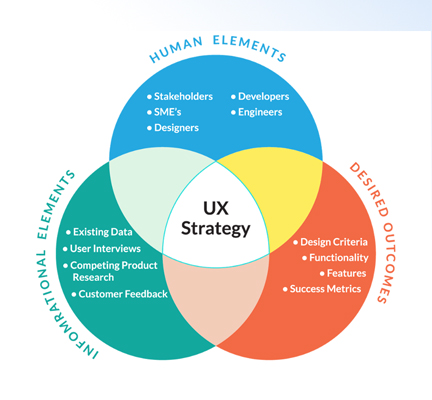UX Design & Research
What is UX Research?
UX (user experience) research is the systematic investigation of users and their requirements, in order to add context and insight into the process of designing the user experience. UX research employs a variety of techniques, tools, and methodologies to reach conclusions, determine facts, and uncover problems, thereby revealing valuable information which can be fed into the design process.
UX research aims to gather information from users by way of a variety of qualitative and quantitative methods, including interviews, contextual inquiries, diary studies, personas, card sorting, and usability testing. The focus is on the systematic approach to gatheringand interpreting collected data. Due to this, UX research demands the structured and methodical selection and application of the most appropriate tools for information gathering. Activities can take place at the generative (ideation) and the evaluative (validation) stages of a development process. UX research helps a design team inform the design of products and services, validate its assumptions, and—ultimately—reduce the cost of delivering a successful product.
In comparison to user research, UX research does not necessarily assume an iterative process. Thus, it can be considered “applied research”— i.e., it is geared around analyzing real-life phenomena in order to furnish detailed facts, instead of aiming to understand underlying abstract principles or to generate or improve a theory.


